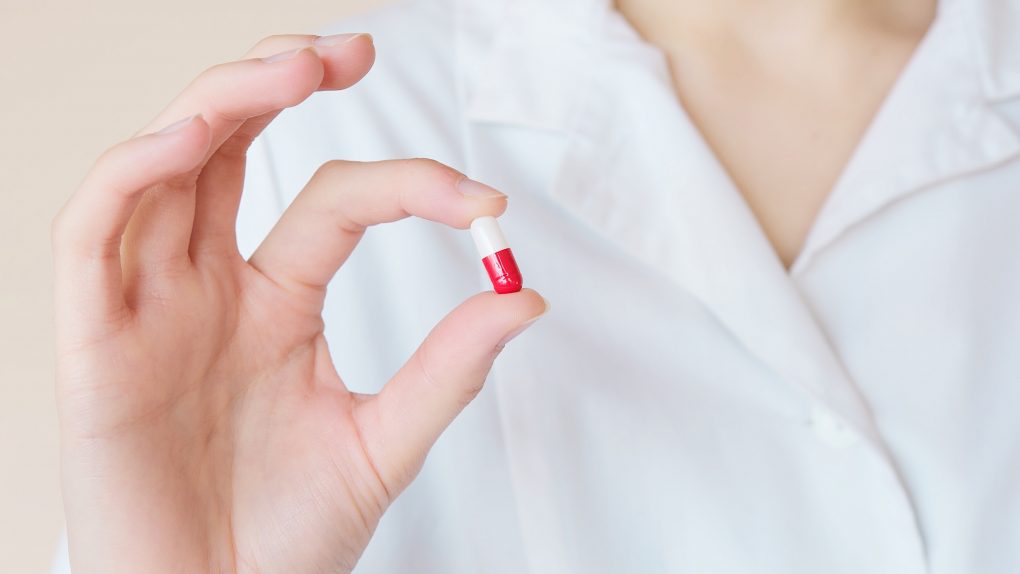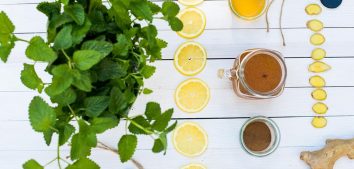
Feed the bacteria in your stomach – are probiotics enough to have a healthy gut?
It’s no news that intestinal microflora is the basis for the proper functioning of the digestive tract. If too many pathogenic bacteria grow in our intestine, it will sooner or later result in constipation, bloating, stomach ache, or diarrhea. Remember, however, that disruption of the gut microbiome means more than intestinal problems. Bacteria living in the intestine affect the immune system, our mood and mental well-being (after all, we say that the intestine is our second brain 🙂 ), and physical condition. One can say that what bacteria produce in the digestive tract affects almost every cell of our body. Even Hippocrates claimed that all disease begins in the gut…
Probiotics
Unsurprisingly, we can observe the growing popularity of probiotics which are live strains of pro-health bacteria. Their use is aimed at restoring bacterial balance in the intestine because probiotic bacteria displace pathogenic contagia from the gastrointestinal epithelium, promote intestinal regeneration by producing a number of beneficial metabolites (e.g. butyric acid), and regulate the intestinal immune system. Of course, we must use them for a sufficiently long period of time so that our microbiome can be comprehensively restored.
I always compare the need to support the intestinal ecosystem with probiotics to the “intestinal” war in which the army of our country (i.e. intestinal bacteria) cannot cope with the excessive numbers of enemy troops (i.e. an excess of pathogenic bacteria, fungi, and other harmful microbes). Then we have to invite additional, friendly armed forces into our intestines, and that’s how we must treat supplements called probiotics. These additional forces are to help our “intestinal army” in regaining the right place in the digestive tract, and when the mission is complete, they should leave our body. In other words, after a proper time of supplementation, our microflora must cope on its own without additional support.
Is that enough?
However, we have to think whether long-term use of probiotics is enough to ensure a healthy intestinal microflora…? Well, it isn’t.
It is just as important to feed our intestinal bacteria! If we don’t nourish our microbiome, even the best probiotics will only have a beneficial effect for the time of supplementation.
The basic thing is to take care of the microbiome in terms of nutrition. This means providing those foods that contain the largest amount of prebiotics on a daily basis. Simply put, prebiotics are non-digestible plant fibers. We don’t digest them, but this does not mean that they are unnecessary. Actually, prebiotics are the basic “fuel” for the intestinal microflora. Beneficial bacteria break down the prebiotic, thanks to which they gain the energy necessary to multiply and colonize the intestinal epithelium. In this process, they also work directly to our advantage, producing a number of short chain fatty acids necessary for regeneration of the digestive tract.
The question is: what should your diet be to have a healthy microbiome? Contrary to what you might think, it is simple and based on an adequate supply of dietary fiber. A proper daily portion of vegetables and fruits is enough. And that’s how you’re going to feed health-promoting microbes in your intestine!
That’s why you should have products high in prebiotics as often as possible. They include chicory root, beans, onions, asparagus, garlic, Jerusalem artichoke, bananas, wheat bran. The diet should also be processed as little as possible, without food additives, emulsifiers, dyes or preservatives. We should also remember about eating “live” foods containing lactic acid bacteria, i.e. fermented products, yogurt, acidophilic milk. Some people mistake these products as an alternative to probiotics. Meanwhile, fermented dairy products can’t replace probiotics because they do not contain bacteria isolated from the gastrointestinal tract with proven healthy effects. However, they are a very important part of a healthy diet.
Recipe for health
Only a combination of probiotic supplementation with a daily portion of prebiotics can guarantee a healthy intestinal ecosystem. It is of course much easier to have a pill with a probiotic than to change your eating habits. You can’t avoid that … 🙂
You can also find prebiotics in the form of ready-made supplements, such as inulin, GOS, FOS, or resistant starch. However, the basic source should come from our daily diet.
It is really worth it because enriching your daily diet with dietary fiber favorably changes the microbiome already after 10 days! 🙂
If you want to know more about probiotics take a look: HERE, HERE and HERE 🙂










Comments No Comments
Join the discussion…